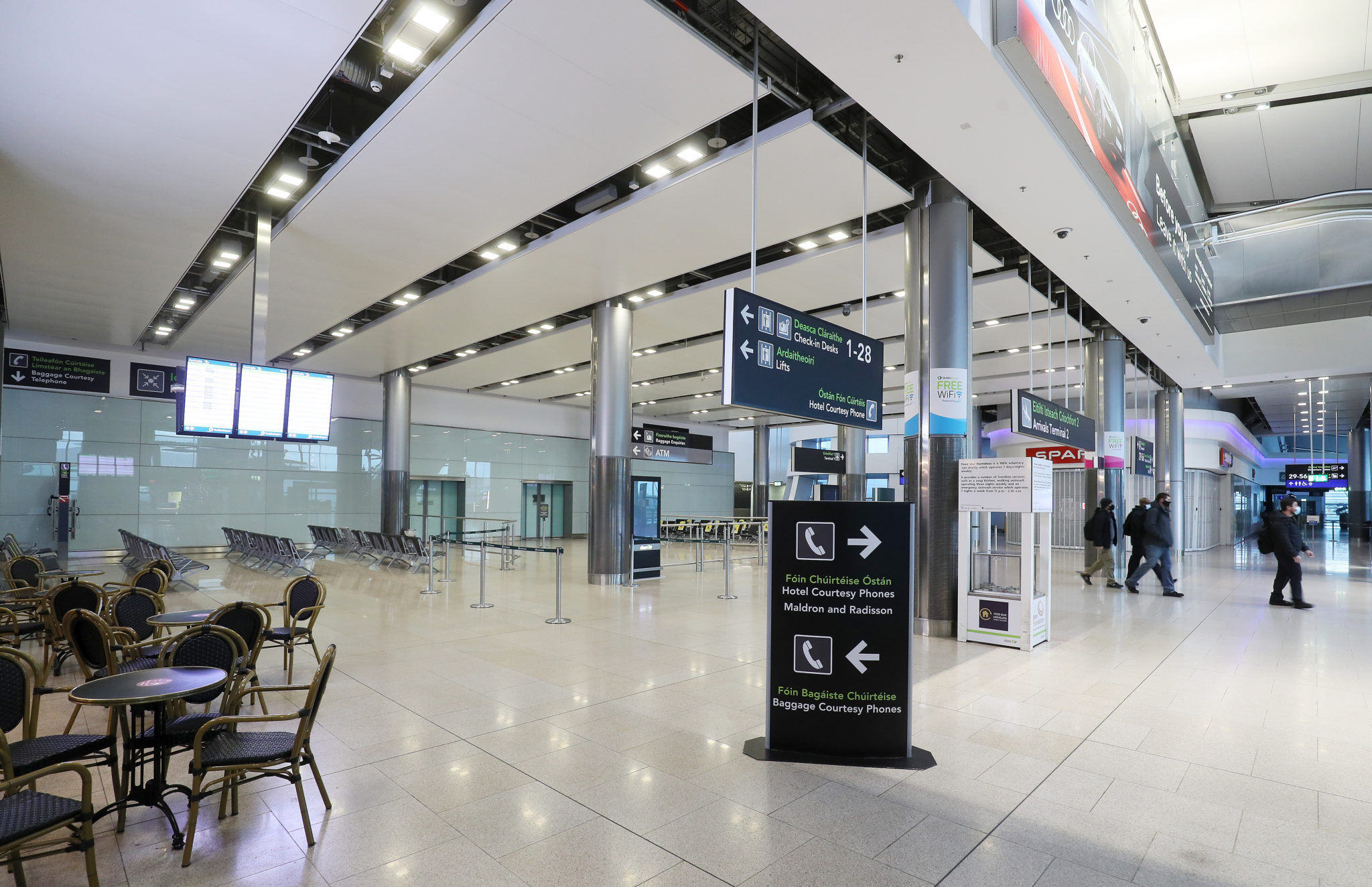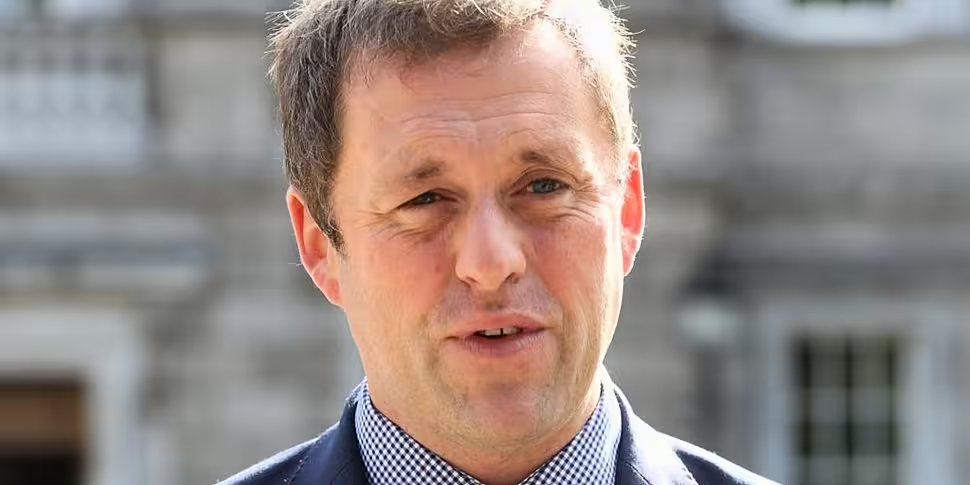It is too early to say whether Ireland can meet its vaccination targets by the end of March, according to the Minister of State for European Affairs.
Thomas Byrne said that plans to inoculate 700,000 people by the end of that month are still being worked on.
It comes as AstraZeneca said deliveries of its soon-to-be-approved jab will be 60% less than planned in the next two months due to a production glitch.
The President of the European Council says the EU will be using "all legal means" to ensure vaccine contracts are respected.
Taoiseach Micheál Martin said yesterday that this "setback" is a "concern" but added that, notwithstanding the delayed supply of the AstraZeneca vaccine, the immunisation rollout will pick up here in the second quarter of this year.
Speaking to On The Record with Gavan Reilly, Deputy Bryne said the Government first became aware of the issue with AstraZeneca deliveries on Friday.
He said: "Member States like us, as Stephen Donnelly has been saying, were looking for an advanced supply of AstraZeneca before it was approved so we could get it out there as soon as it was approved.
"We weren't the only ones looking for that so I think this has come as a bit of a bombshell.
"When you add up all the vaccine does that the European Commission has contracted for, it's vastly in excess of the population of the EU, the problem is they're not all coming at once."
Deputy Bryne said the Commission would be working with companies to repurpose factories to manufacture the vaccines.
Meanwhile, the company and the Commission are due to meet tomorrow to discuss the matter.
He added: "Undoubtedly we will have serious questions for AstraZeneca when the meeting takes place tomorrow, this was the first contract undertaken with the Commission and it's very hard to explain, and I'll be waiting for answers on that."
Ireland should 'do whatever it takes'
Ireland, as part of the EU, has "significant purchasing power", which Deputy Byrne said has to be used so that everything possible can be done to administer the vaccine.
"We need to be able to use that strength and power we have in the EU to make sure this is done and do whatever it takes from an EU position, whether it means helping build factories or helping to make sure the production line is able to do that, because we have the ability and the financial muscle," he added.
The Minister said he "can't say" whether the target to have 700,000 people immunised here by the end of March will be impacted by the supply shortage.
It is also not known how many extra doses Ireland will receive from Pfizer on February 15th, or when the Johnson and Johnson vaccine will be approved.
He added: "There is hope on the horizon but I have absolutely no doubt that the EU Commission will use its muscle.
"But make no mistake, it's not good news and certainly doesn't help the situation."
 An almost empty arrivals hall in Terminal 2 of Dublin Airport on January 16th 2021. Picture by: Brian Lawless/PA Wire/PA Images
An almost empty arrivals hall in Terminal 2 of Dublin Airport on January 16th 2021. Picture by: Brian Lawless/PA Wire/PA ImagesTravel restrictions
Meanwhile, there have been increased calls in recent days for the introduction of a mandatory quarantine period of at least five days for people arriving in Ireland from abroad.
A Cabinet sub-committee is set to consider further travel restrictions tomorrow before a full meeting on Tuesday.
Deputy Byrne said national governments in the EU are now making their own decisions on whether to limit travel as "the traffic light system has almost fallen apart due to the changing situation" with the virus.
"This thing changes so quickly and I think people are very concerned now, particularly with the variants," he said.
"The issue is that we're testing very, very little on the genomic side, on what type of variant is there and there's a push now to do more of that and that may lead to the discovery of more variants, that's a possibility.
"Obviously travel is an issue, the normal social distancing etc is an issue, but the vaccination is the game-changer and that's why I think we really need to have all of our focus on that to get it rolled out as quickly as possible and to stop deaths and to allow us to return to some sort of normalcy."
He added that the Government has made it clear that people should not go on "discretionary holidays" and expects "pretty strong decisions" to come out of tomorrow's sub-committee meeting.
A two-island approach, which the Taoiseach has discussed with British Prime Minister Boris Johnson, would solve a lot of the problems around travel, Deputy Byrne said.
He stated that talks on such a measure are continuing "at the highest levels" and are "very welcome".









